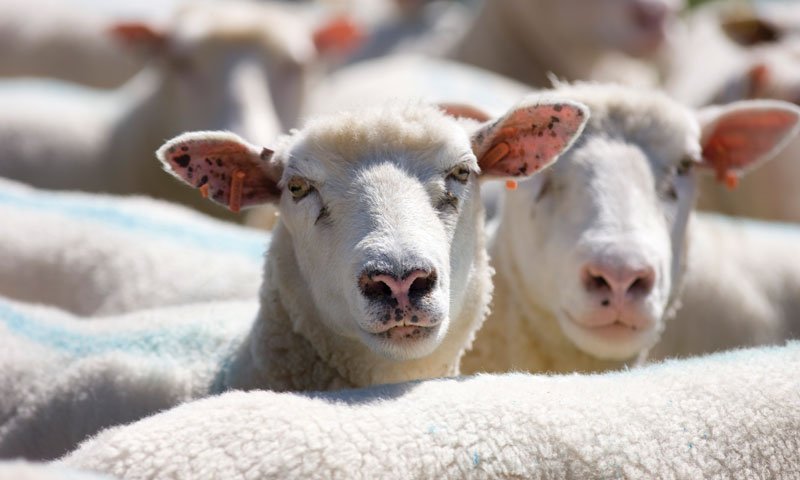News

Hub to aid precision breeding of future farm animals
Edinburgh experts will receive almost £5 million to establish a new hub at the University’s Roslin Institute, based at the Easter Bush campus, to drive advances in engineering biology – a major innovation focus for the UK Government.
The hub will focus on research to identify and study small changes to DNA in animals to advance sustainable agriculture and control diseases.

Fat recycling mechanism could boost salmon health
Aquaculture experts, in collaboration with the University of Glasgow, University of Stirling and Benchmark Genetics, have identified a fat recycling process in Atlantic salmon cells that could help enable healthier feed strategies and improved disease resilience.
This process helps break down excess fat inside cells, and its discovery could play a major role in tackling the challenges of modern salmon diets.

Data-driven programme designed to tackle global challenges
A flexible new postgraduate programme designed to tackle global challenges through genetics and data skills will launch in September 2025, supported by a dedicated e-learning team and aimed at training the next generation of experts in a range of industries and academic fields.

Artificial intelligence supports pig welfare
A combination of tracking technology and social mapping that reveals how pigs build relationships over time could inform welfare strategies. Artificial intelligence (AI) has been combined with techniques to map animals’ interactions, to gain insights into pigs’ social relationships. Scientists at the Roslin Institute, in collaboration with industrial partners PIC and an international research team, examined how pigs associated with one another over time by using technology to analyse their proximity during social interactions.

Research events mark Moredun and Roslin partnership
Themed talks, discussion and guest lecture launch next phase of collaboration between neighbouring organisations within Midlothian Science Zone.
A programme of research-themed events has marked a new phase in a strategic collaboration between the University of Edinburgh and Moredun Research Institute.

Large-scale study focuses on fish health and welfare
An £8.5m, large-scale research partnership seeks to improve the welfare and productivity of farmed salmon in Scotland.
In a project led by the Roslin Institute partnered with the UK’s largest salmon farmer Mowi Scotland, experts will seek to understand how to limit the impact of chronic complex diseases, enabling better health and welfare.

Pig studies support ongoing Covid-19 research
Researchers from across the University of Edinburgh and Moredun Research Institute, are collaborating in a study of gene-edited pigs to better understand severe Covid-19, providing insights into disease progression and treatment development.

Genomics study to help retain diversity in UK sheep
Insights into the genetic makeup of UK native sheep breeds can help to preserve their beneficial traits, especially of rarer native breeds, which have fallen to low numbers, a study has shown.
The outcomes could help preserve a diversity of characteristics found in sheep breeds from the UK, including many versatile types of fleece, the ability to seasonally shed, and the hardiness to thrive in harsh environments.

Insights into bone health to aid poultry welfare
Fresh insight into bone health in egg-laying chickens could support their health and welfare, by offering a simple way to assess risk and damage to their vulnerable breastbones, also known as sternum or keel bone.

DNA encoding method aids data-driven genetics research
New approach to representing genetic inheritance could support studies involving large datasets. A new method of encoding and understanding the ancestry of a set of related DNA sequences could support storage and analysis of large genetic datasets.
